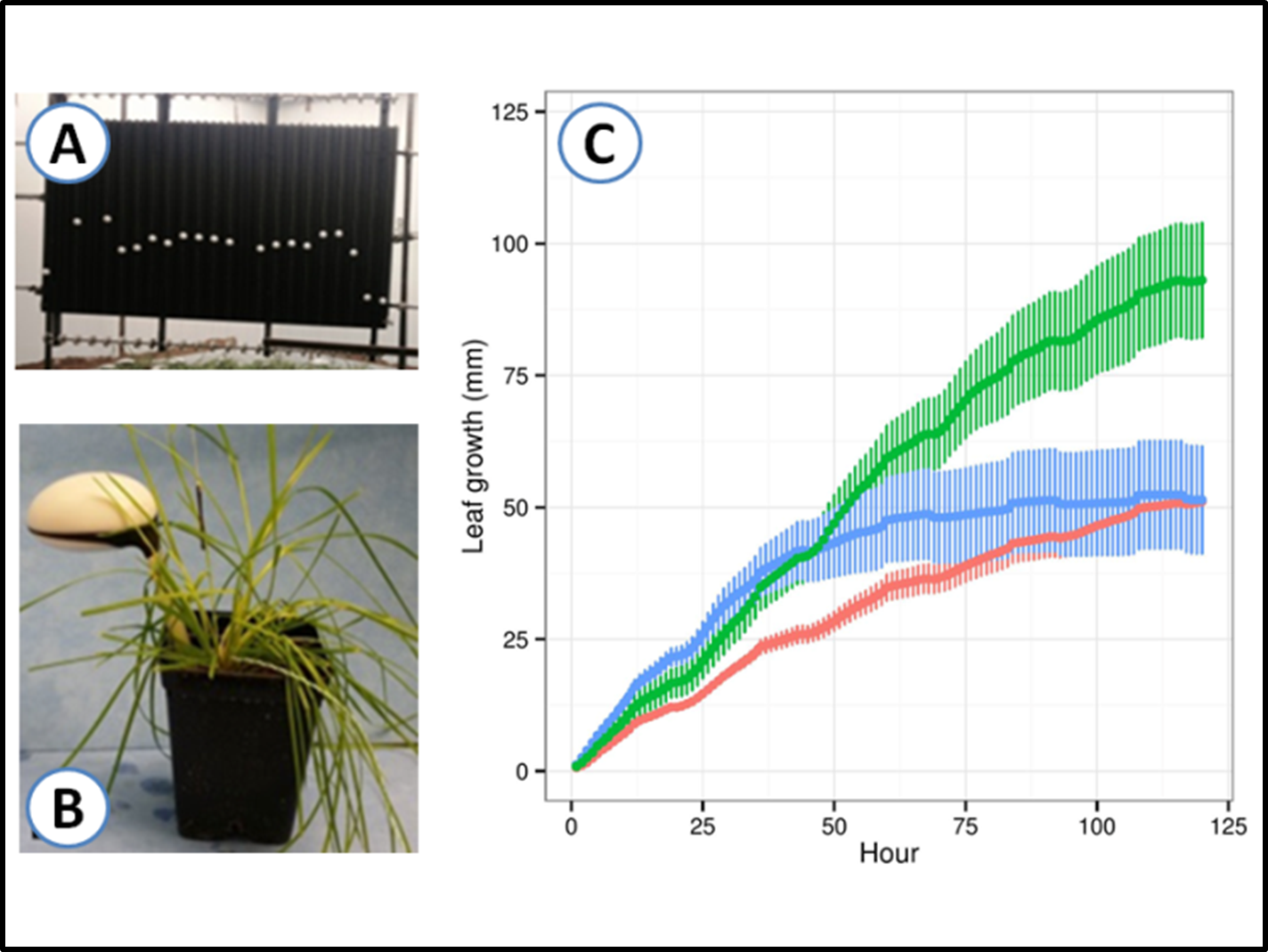Modelling leaf growth under water stress
Contact person: Steven Yates
Partners: Kristina Jonavičienė, Sebastian Nagelmüller, Frank Liebisch, Norbert Kirchgessner, Achim Walter, Gintaras Brazauskas and Bruno Studer
Project description: In agriculture, drought causes major yield losses. Even temperate environments are subjected to mild summer droughts reducing yield. An important aspect to consider when breeding for drought tolerant crops is the severity and duration of the stress, as increased survival under severe drought does not equate to improved performance under mild drought. When the stress does not threaten survival, growth arrest leads to reduced biomass; which is the main yield target in forage crops. Therefore, understanding plant growth by characterizing leaf elongation rates (LER) under favorable and unfavorable conditions is of high value for yield improvement under unfavorable conditions in perennial ryegrass.
Our group has designed and implemented a novel phenotyping platform to study the effects of water deficit (and other environmental variables) in Lolium perenne. This platform uses Martrack leaf length technology, designed at ETHZ in the group of Prof Achim Walter, to measure leaf elongation every two minutes. This affords high temporal resolution, and high precision, recording of leaf length over the course of an experiment. As part of the experimental setup; water is withheld for five days and soil moisture is measured using Koubachi sensors. For the analysis of these data we have developed an ecophysiological model which can predict when leaf growth slows and arrests in a fluctuating environment. This model distills complex data into three agronomically important parameters, for future use in association.
Dr Kristina Jonavičienė has currently evaluated ~200 genotypes from an association panel created in Lithuania. This will be the basis for future genetic dissection of abiotic stress resistance trait in L. perenne. In addition this platform has been used to study temporal profiling of transcriptome and physiological responses of perennial ryegrass to water stress. Where it is hoped that the combination of data sets will be used to refine underlying QTL and also validate hub-genes. This system will also be used to screen abiotic stress resistant mutants identified through forward genetic screens. The platform described here can also be adapted to study other abiotic stress factors: for example temperature (high and freezing) together with other osmotic stresses such as salt.

